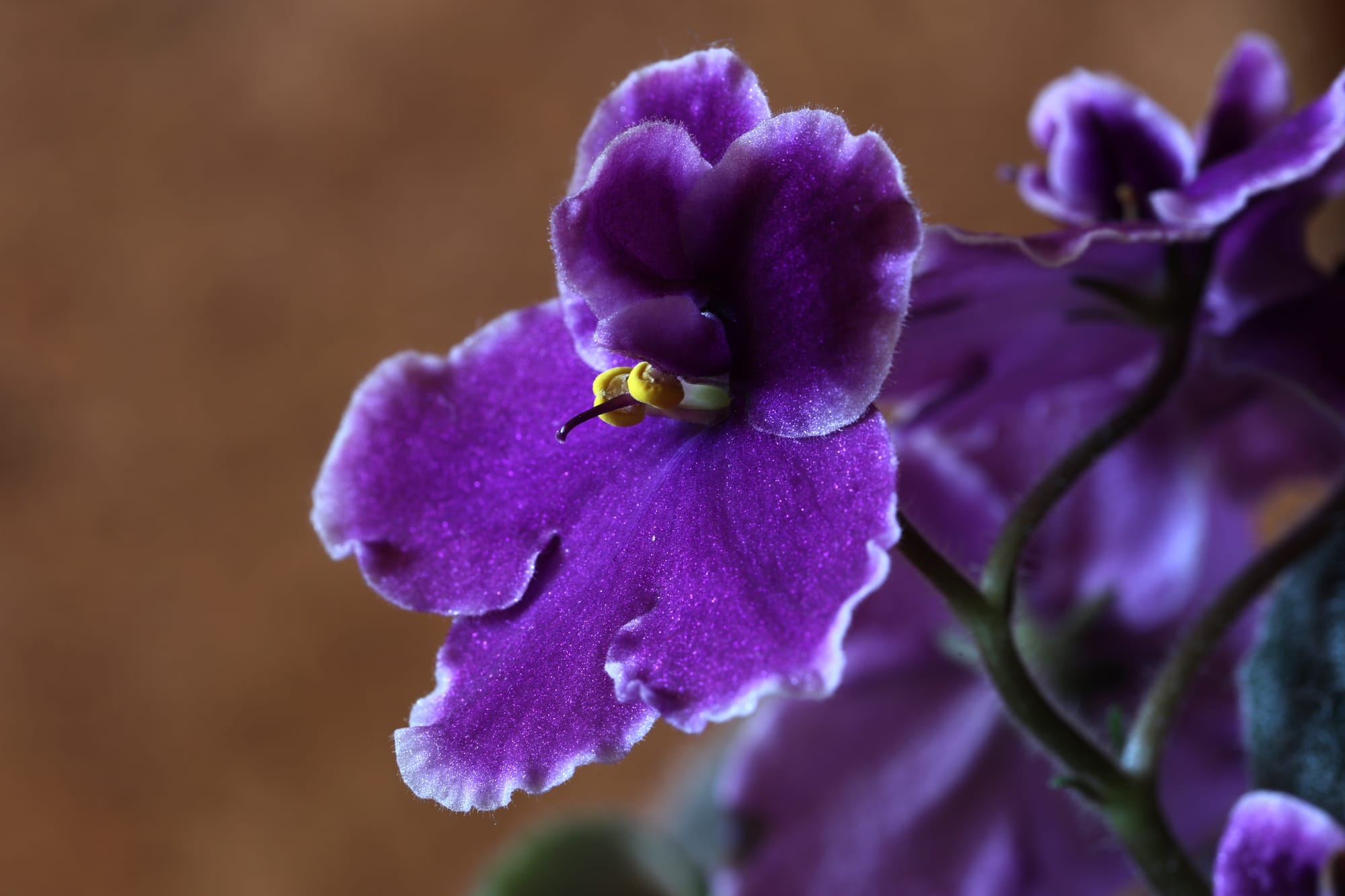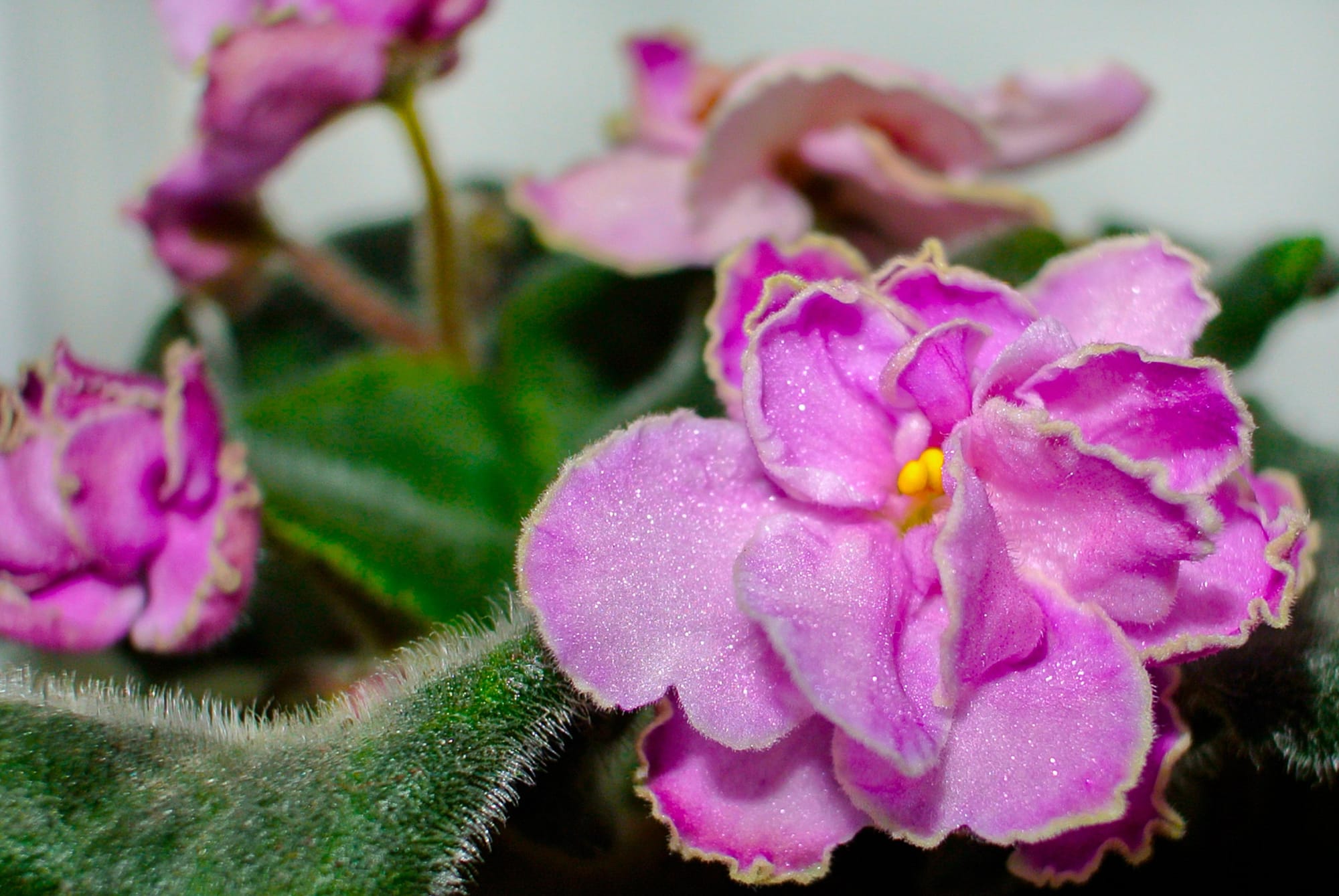In Defense of African Violets
Why It's Good to Consider Looking Past the Stereotypes of this Hardy Flowering Houseplant

I have a friend who is deeply into African violet hybridizing, so over the past couple of years, I've been gifted several of these plants. As a result, there's always been at least one growing in my home. Over time, though, I've become so used to having them around that I’ve barely paid attention to them—often to the point of neglect.
Recently, I was dealing with powdery mildew on my streptocarpus plants due to some weather changes, but I noticed the African violets were completely unaffected, just quietly thriving. It’s funny—I’d even say I’ve neglected them, yet they’ve remained healthy.
There's a common challenge for plant lovers: sometimes, we love our plants a little too much—literally to death. This can happen with any plant, indoors or out. We often believe that more effort, like extra watering or fertilizer, will lead to better results—more flowers or faster growth. But, ironically, over-attention can lead to overwatering or overfeeding, which harms the plants. In this case, by doing the bare minimum for these African violets, I’ve allowed them to live perfectly healthy lives.
Of course, the opposite can happen too. Some plant parents pay no attention until it's too late—when disease or drought has taken its toll. I believe there are plants for all types of people; it’s just about figuring out whether you tend to neglect, follow instructions to the letter, or overindulge in care.

I think the reason so many people have aunts or friends who always seem to have a collection of African violets—and are ready to gift a potted plant or leaf cutting—is that these plants strike the perfect balance for low-maintenance houseplants. You don’t need a horticulture degree to grow them. In fact, you can get all the basics down by watching just two or three YouTube videos on how to care for African violets.
One of the best things about African violets is the incredible variety they offer. Whether it's blooms or foliage, there are so many options to choose from—every color you can imagine, from simple to double blooms, green leaves to mosaic or splattered patterns, and flowers ranging from ruffled to simple. You can find large plants with small flowers or small plants with large flowers. Miniatures are under 6 inches in height and spread, while some African violets can grow over 16 inches wide. In other words, there’s a variety for every preference.
If you're just looking for a basic African violet, you can often find them locally (especially if you don't have an aunt ready to gift you one). The advantage of buying locally is that you can see exactly what you're getting, avoid shipping costs, and usually spend just a few dollars. It’s a great way to try out African violets and see if you enjoy growing and caring for them.
However, the really good ones are sold online. Either by African violet sellers on eBay or Etsy, or places like Lydon Lyon or the Violet Barn. If you're going to spend the money on the "designer" plants, it's good to know what you like and look for photos of those same plants online to make sure you get what you expect. You can easily spend more on shipping than the cost of one plant. But if you love a particular variety, it's well worth the expense. Then you can propagate more for personal use after it gets established in your home.

One challenge you might face with African violets is the overwhelming number of varieties available. For some, this can be a fun puzzle to explore, while for others it may feel a bit daunting. I’ve even come across online African violet shops offering mystery plant bundles at a discount. If you enjoy a good surprise, this can be a fun and budget-friendly way to try out a few varieties without committing to full-price plants.
You can even grow African violets from seeds. though these aren’t very commonly sold. It's important to carefully vet the seller to avoid scammers, especially from unreliable sources. The seeds themselves are very tiny, which can make them tricky to work with for some people. Alternatively, you can cross-breed African violets to create seeds and grow your own unique varieties—but that’s a topic for another article.
One of the issues with African violets is that they've become victims of their own success. Their popularity, especially among retirees, has led to some stereotypes. But there aren’t many plants that almost anyone can grow and keep blooming year-round in such a wide range of colors. If you’re worried about their "over-popularity" or all the clichés that come along with growing them, (which was something that held me back at first), you can always put your own twist on them. Seek out rare, unique, or hard-to-find varieties to add something special to your collection. And if you’re feeling adventurous, you can even try hybridizing your own varieties.
© Copyright Terry Aley
The Aley Acres seed shop on Etsy.
Dahlias, Notes from a Gardener book on Amazon.
Floral Art and Landscape Painting Etsy shop.
TikTok, some gardening posts.
